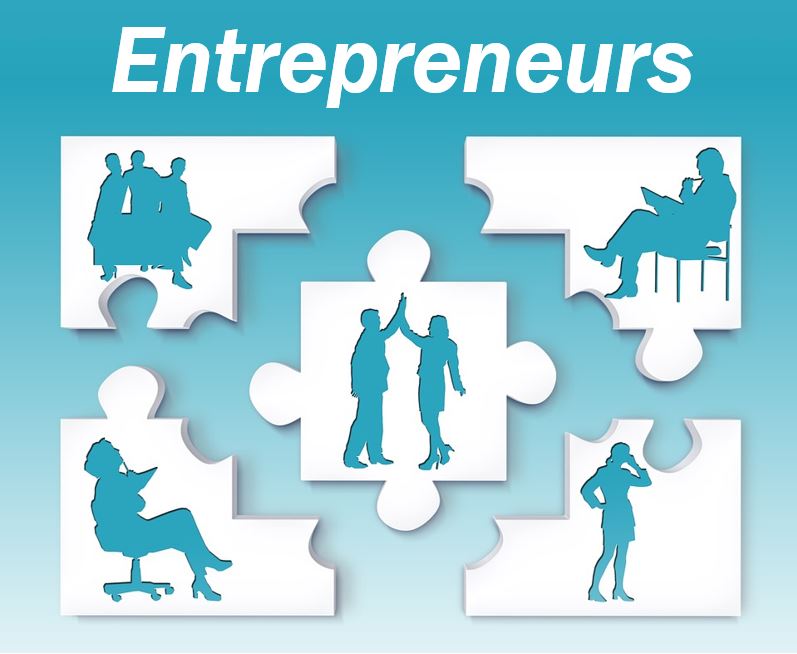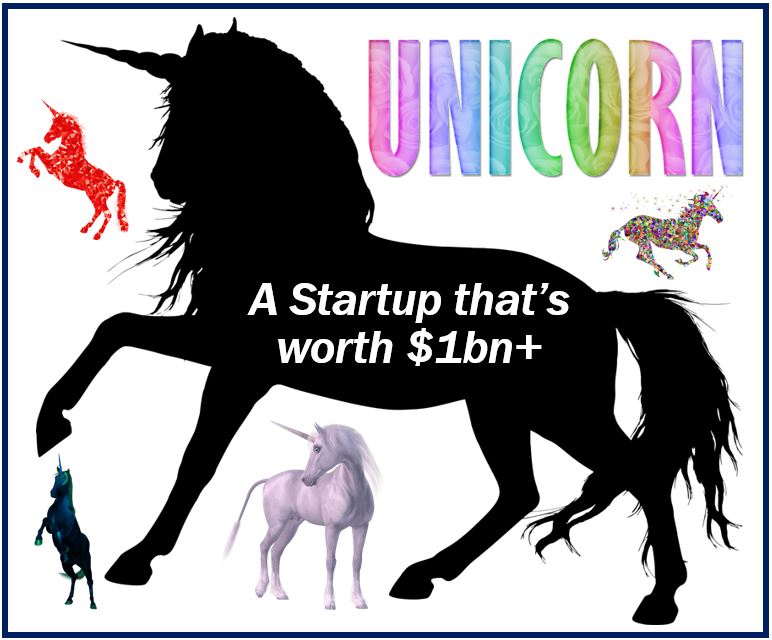What is a startup? Definition and examples
A Startup is a new company. Its founder recently set it up and it is now doing business. We tend to use the term for companies that investors, especially venture capitalists, will become interested in. If I opened a corner grocery store, I would not describe it as a startup.
 In many cases, capital investments in startups are high and initial revenue is low. Therefore, they cannot continue for long without additional investments or loans from banks, angel investors, or venture capitalists.
In many cases, capital investments in startups are high and initial revenue is low. Therefore, they cannot continue for long without additional investments or loans from banks, angel investors, or venture capitalists.
Angel investors are people who invest their own money in startup businesses. Venture capitalists do the same, however, they often use other people’s money. A venture capitalist may be a person or a firm, while an angel investor is never a firm.
Cambridge Dictionary defines a startup as “a new business, or the activities involved in starting a new business”.
The following terms (often) mean the same as “startup”: new venture, emerging company, fledgling business, early-stage company, entrepreneurial venture, or new enterprise.
Startup and the Entrepreneur

Some people describe startups as enterprises in the early stage of their life cycle. The entrepreneur who founded it has moved from the idea stage to getting the necessary funding and getting the new business off the ground.
Whenever you hear or read about a startup, there is always an entrepreneur or a group of them that started the whole thing off.
Entrepreneurs are people who see a business opportunity and create their own company to exploit it. An entrepreneur might also be somebody who identifies a problem and then creates a company or business venture to solve it.
When entrepreneurs set up their startups, they want them to grow, have more and more employees, greater sales, and become big businesses. They are high-risk businesses. However, the ones that do succeed may turn into multinational billion-dollar giants.
Failure rate
Regarding failure rates for these types of companies, Wikipedia makes the following comment:
“Startups face high uncertainty and do have high rates of failure, but the minority that go on to be successful companies have the potential to become large and influential.”
According to an article in Fortune magazine, ninety percent of startups end up failing. In a study involving 101 startups that didn’t succeed, the top factors were (in order of importance):
- Lack of interest (from consumers).
- Money problems, i.e., funding or cash.
- Personnel problems.
- Competitors.
- Pricing problems.
A startup can become a Unicorn, Decacorn, or Hectocorn
 A Unicorn or Unicorn Company is a startup that is worth over $1 billion. In the vast majority of cases, since the turn of the century unicorns have been tech companies, i.e., makers of software and hardware.
A Unicorn or Unicorn Company is a startup that is worth over $1 billion. In the vast majority of cases, since the turn of the century unicorns have been tech companies, i.e., makers of software and hardware.
Super successful new companies – worth over $10 billion – are Decacorns, while Hectocorns are worth more than $100 billion.
Ant Financial Services Group, based in Xihu District, Hangzhou, China, is the world’s most valuable startup today (October 2019). The company is just four years old and is worth $150 billion.
Airbnb Inc., based in San Francisco, is America’s most valuable startup. The company started operating in 2008 and is currently worth more than $31 billion.
In addition to their potential financial growth, startups are often at the forefront of innovation, seeking to disrupt established markets with new technologies and business models.
Brief history
The term “startup” entered the English language in the early 1500s.
According to the Oxford English Dictionary, it was not until the early 1970s that it acquired its current meaning, referring to a new breed of small companies with high growth potential.
During the tech and Internet business boom in the late 1990s and early 2000s, with companies like Apple and Microsoft growing rapidly, the term became especially popular.
Startup-specific vocabulary
In the world of startups, there are many terms and phrases. Here are some compound nouns containing the word “startup,” their meanings, and examples of how we use them in a sentence:
-
Startup culture
The environment and ethos of the startup world, often characterized by innovation and risk-taking.
Example: “The startup culture in Silicon Valley attracts many aspiring entrepreneurs.”
-
Startup ecosystem
A community or network of startups, investors, service providers, and other stakeholders.
Example: “The startup ecosystem in the city has been thriving with the influx of venture capital.”
-
Startup accelerator
A program that supports early-stage startups through mentorship, resources, and funding opportunities.
Example: “She enrolled her company in a startup accelerator to gain access to expert advice and potential investors.”
-
Startup incubator
An organization that helps new businesses grow and succeed by providing services like office space and management training.
Example: “The new startup incubator downtown has become a hub for innovative tech companies.”
-
Startup founder
An individual who starts a new business, typically taking on greater than normal financial risks.
Example: “The startup founder pitched his business idea to a group of potential investors.”
-
Startup capital
The initial money required to start a new business, often used for early operations and growth.
Example: “They secured sufficient startup capital to fund their operations for the first six months.”
-
Startup venture
A new business undertaking that is typically high risk with the expectation of significant growth and financial return.
Example: “Their startup venture quickly gained attention for its disruptive approach to the traditional industry.”
Video – What is a startup?
This video presentation, from our sister channel on YouTube – Marketing Business Network, explains what the meaning of ‘Startup’ is using simple and easy-to-understand language and examples.

